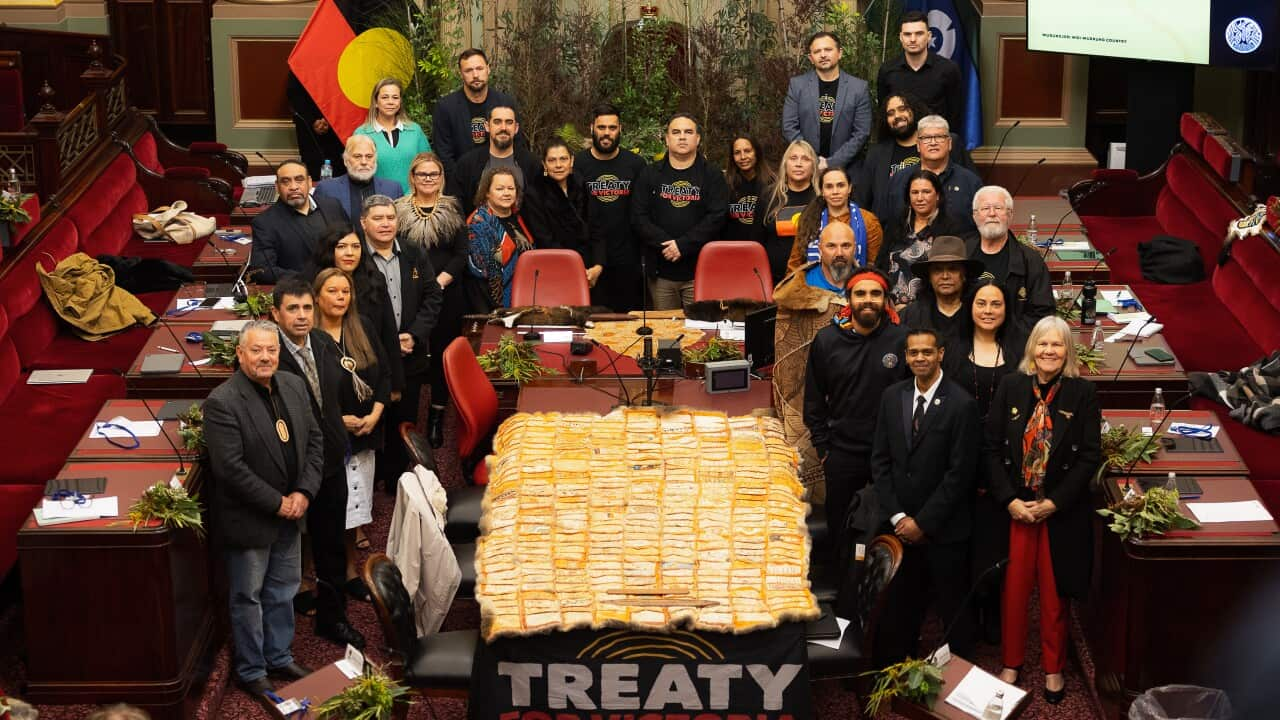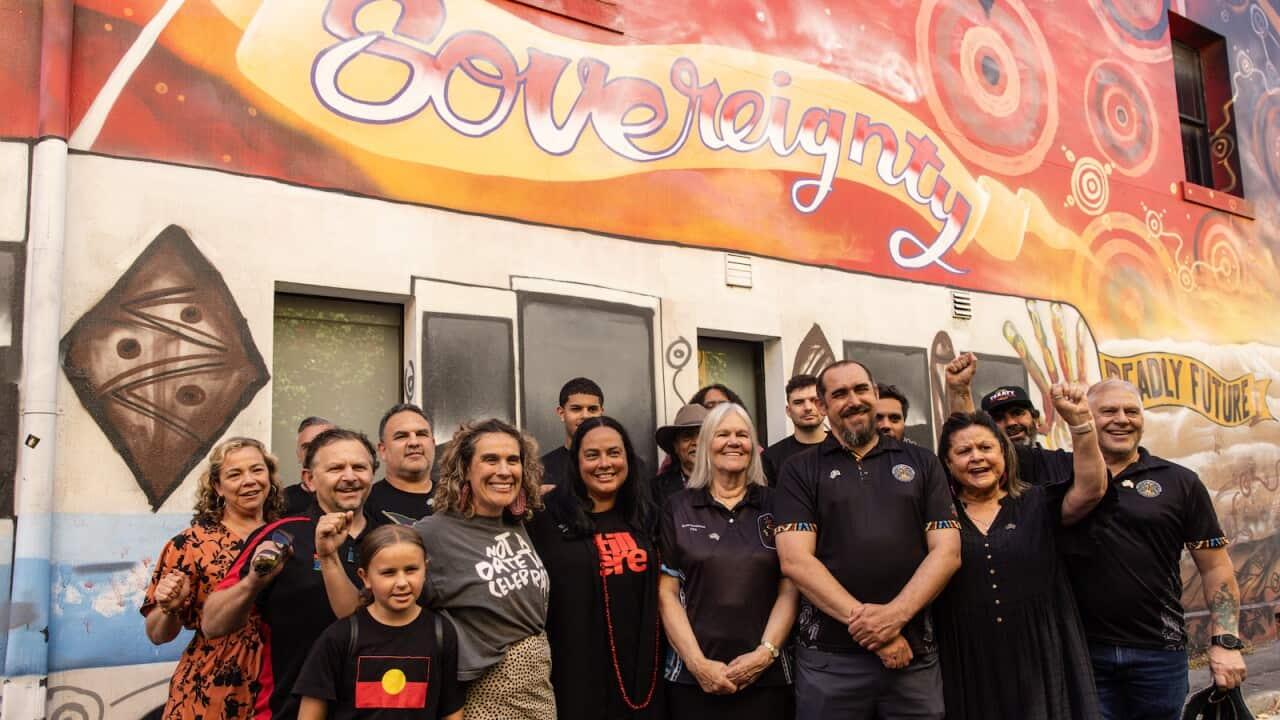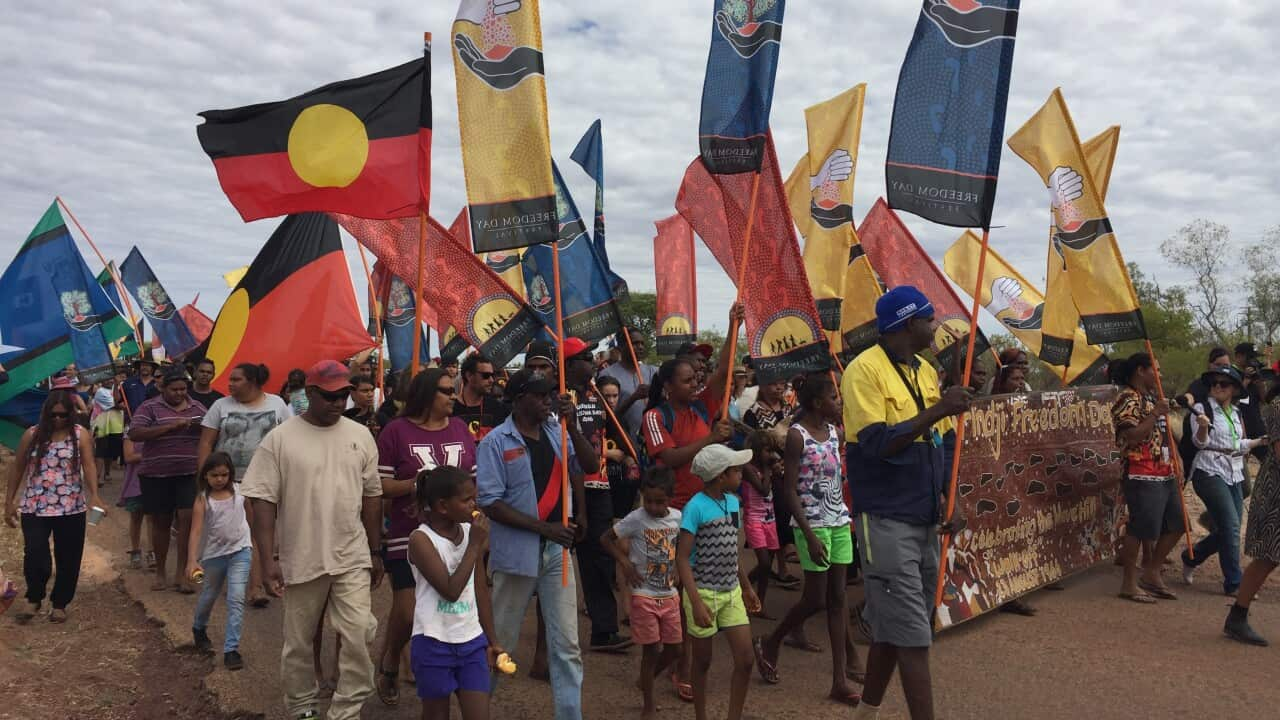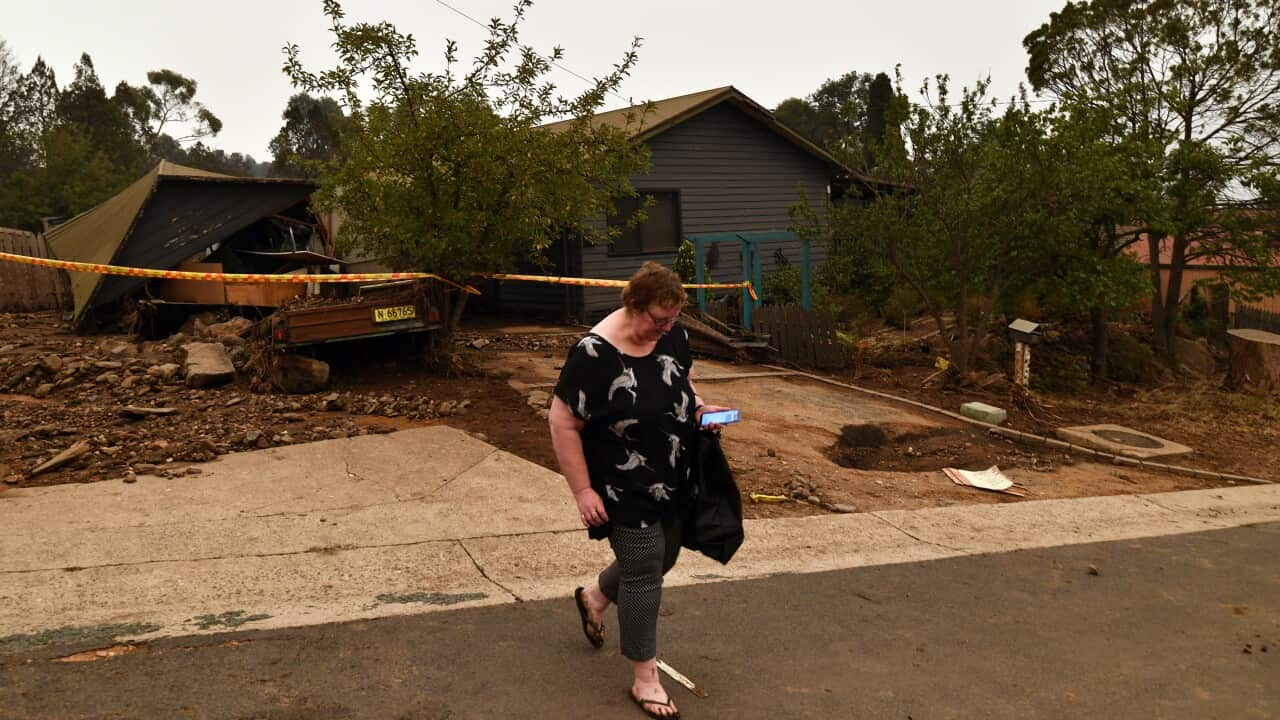Key Points
- معاہدے کا مطلب حکومتوں اور آسٹریلیا کی اولین اقوام کے لوگوں کے درمیان ایک رسمی معاہدہ ہے۔
- بہت سے اولین اقوام کے لوگ معاہدے کو انصاف، احترام اور مستقبل میں بہتر تعلقات کی طرف ایک قدم سمجھتے ہیں۔
- ایک قومی معاہدہ آسٹریلیا بھر میں اولین اقوام کے حقوق کے اعتراف کے لئے ، ملک بھر میں ایک تفہیم پیدا کرے گا۔
- ابوریجنل اراضی کے حقوق، آبائی عنوان اور معاہدے میں کیا فرق ہے؟
- آسٹریلیا میں معاہدے کا مطلب کیا ہے؟
- معاہدہ کیوں اہمیت رکھتا ہے؟
- معاہدے میں کیا شامل ہو سکتا ہے؟
- آسٹریلیا میں معاہدے کے لئے اگلا قدم کیا ہوگا؟
معاہدہ حکومتوں اور ابورجینل اور ٹورس اسٹریٹ آئی لینڈر لوگوں کے درمیان ایک باضابطہ رسمی تحریر ہے۔ ایک معاہدہ یہ بیان کرے گا کہ حکومت اور اولین اقوام کے لوگ کس طرح مل جل کر کام کر سکتے ہیں، فرسٹ نیشنز کے حقوق اور تاریخ کو تسلیم کرتے ہوئے مستقبل کے لیے ایک منصوبہ سازی کر سکے گا۔
معاہدے کی سمجھ بوجھ حاصل کرنا آسٹریلیا کی کہانی سے جڑنے کا ایک مؤثر طریقہ ہے۔ یہ صرف قوانین اور سیاست کے بارے میں نہیں ہے، بلکہ احترام، سچائی، اور اس ملک کو گھر کہنے والے ہر فرد کے لیے ایک زیادہ منصفانہ معاشرے کی تعمیر کے بارے میں ہے۔
ابوریجنل اراضی کے حقوق، آبائی عنوان اور معاہدے میں کیا فرق ہے؟
اگرچہ ان اصطلاحات کو اکثر مشترکہ طور پر زیر بحث لایا جاتا ہے، مگر ان کے مختلف معنی ہیں:
- زمین کے حقوق: وہ قوانین جو حکومتوں کے ذریعہ بنائے گئے ہیں، جن کے ذریعے عام طور پر زمین کونسلز کے ذریعے ابیجنیل اور ٹورس اسٹریٹ جزیرہ باشندوں کو کچھ علاقوں کی واپسی عمل میں آتی ہے۔
- آبائی حقوق: یہ قانونی تسلیم کرنا کہ کچھ فرسٹ نیشنز کے لوگوں کے پاس اب بھی اپنی روایتی قوانین و رسم و رواج کے تحت زمین اور پانی کے حقوق ہیں۔
- معاہدہ: حکومتوں اور فرسٹ نیشنز کے لوگوں کے درمیان ایک با ضابطہ رسمی تحریر۔
یہ تمام طریقے فرسٹ نیشنز کے لوگوں کے لئے انصاف، تسلیم اور خود مختاری فراہم کرنے کا مقصد رکھتے ہیں۔
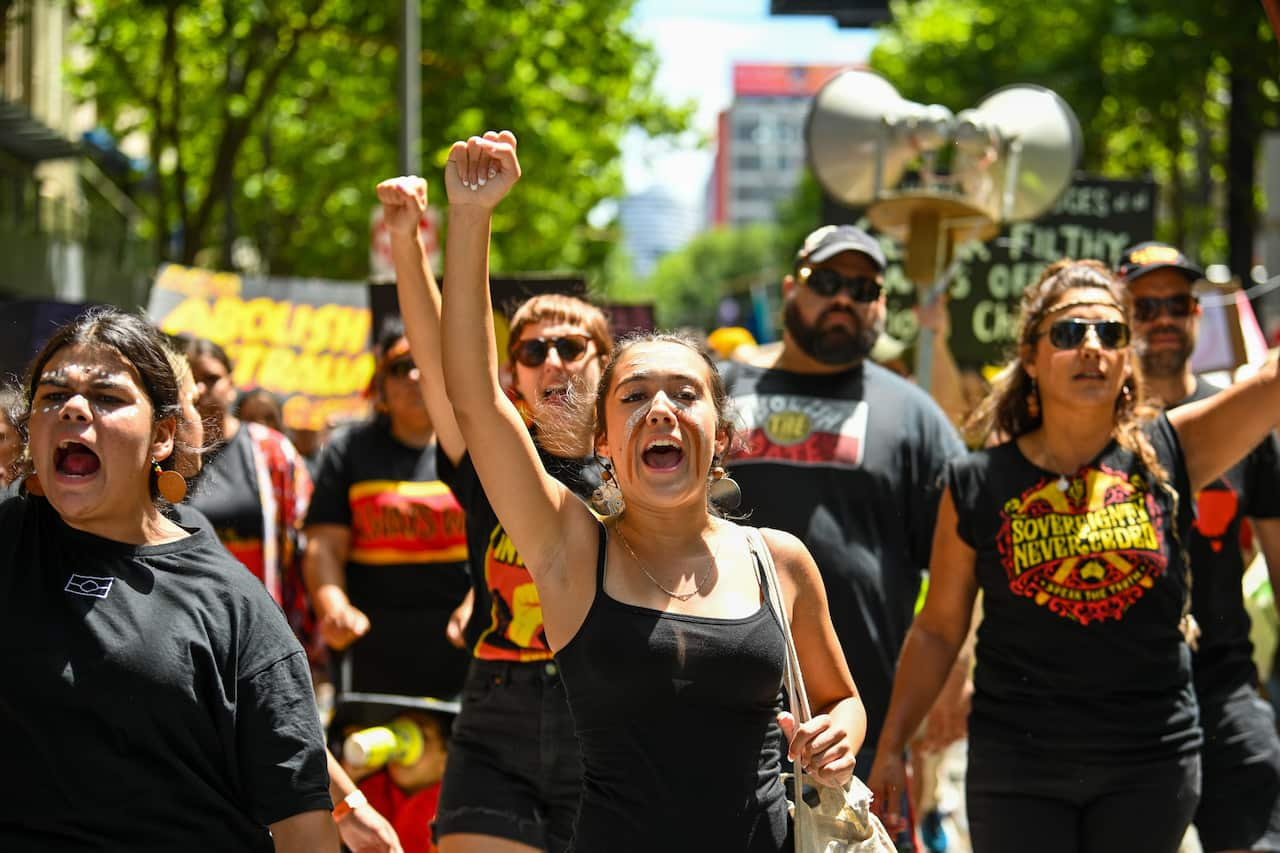
آسٹریلیا میں معاہدے کا کیا مطلب ہے؟
ایک معاہدہ دو گروہوں کو قانونی طور پر پابند کرتا ہے۔ نیوزی لینڈ جیسے ممالک میں حکومتوں اور ماوری نے ویتنگی کے معاہدے پر دستخط کیے۔ کینیڈا میں، فرسٹ نیشنز کے لوگوں کے ساتھ بہت سے معاہدے کئے گئے ہیں۔
دیگر ممالک کے برعکس، آسٹریلیا نے برطانوی استعمار کے وقت اپنے فرسٹ نیشنز کے لوگوں کے ساتھ کوئی قومی معاہدہ نہیں کیا۔ جب انگریز سب سے پہلے ایبوریجنل زمین پر آباد ہوئے تو انہوں نے اسے ’ٹیرا نولیئس‘ قرار دیا، یعنی زمین کسی کی ملکیت نہیں۔ لہٰذا، انہوں نے ابوریجنل اقوام کے ساتھ مذاکرات کی ضرورت نہیں محسوس کی۔ کیونکہ ماضی میں کبھی کوئی معاہدہ نہیں ہوا تھا، اس لیے زمین، وسائل، یا فیصلہ سازی کی طاقت کے اشتراک کے بارے میں کبھی کوئی وسیع معاہدہ نہیں ہوا ہے - جس کو بہت سے لوگ ’’ نامکمل کاروبار‘‘ کے طور پر دیکھتے ہیں۔
بہت سے فرسٹ نیشنز کے لوگوں کے لیے، یہ "نامکمل کاروبار" ہے یہی وجہ ہے کہ معاہدہ آج بھی بات چیت کا اتنا بڑا موضوع بنا ہوا ہے۔
معاہدے کی بات چیت یہاں تاریخ کا اعتراف کرنے، حقوق کو برقرار رکھنے اور فرسٹ نیشنز کمیونٹیز کو فیصلوں میں حقیقی آکردار دینے کے بارے میں ہے۔ قانونی ماہر ڈاکٹر ہیری ہوبس اس کو اس طرح بیان کرتے ہیں:
"مثالی طور پر، معاہدے انڈیجنس اور ٹورس سٹریٹ آئی لینڈر کمیونٹیوں اور ریاستی و وفاقی حکومتوں کے درمیان طے پائیں، کیونکہ آسٹریلین آئین نے اختیارات کو وفاقی پارلیمنٹ اور ریاستی پارلیمنٹوں میں تقسیم کیا ہوا ہے۔"
انڈیجنس اور ٹورس سٹریٹ آئی لینڈر افراد ایک مشترکہ مستقبل کو یقینی بنانا چاہتے ہیں، جس سے سب کے لئے کامیابی کو مستحکم کیا جائے اور آج کے آسٹریلیا میں فرسٹ نیشنز کی ثقافت کو تسلیم کرتے ہوئے اس کا جشن منایا جائے۔ بالآخر، آسٹریلیا میں معاہدے کا مطلب ماضی کے بارے میں ایمانداری سے بات کرنا اور مستقبل کے لئے نیا راستہ متعین کرنا ہے۔
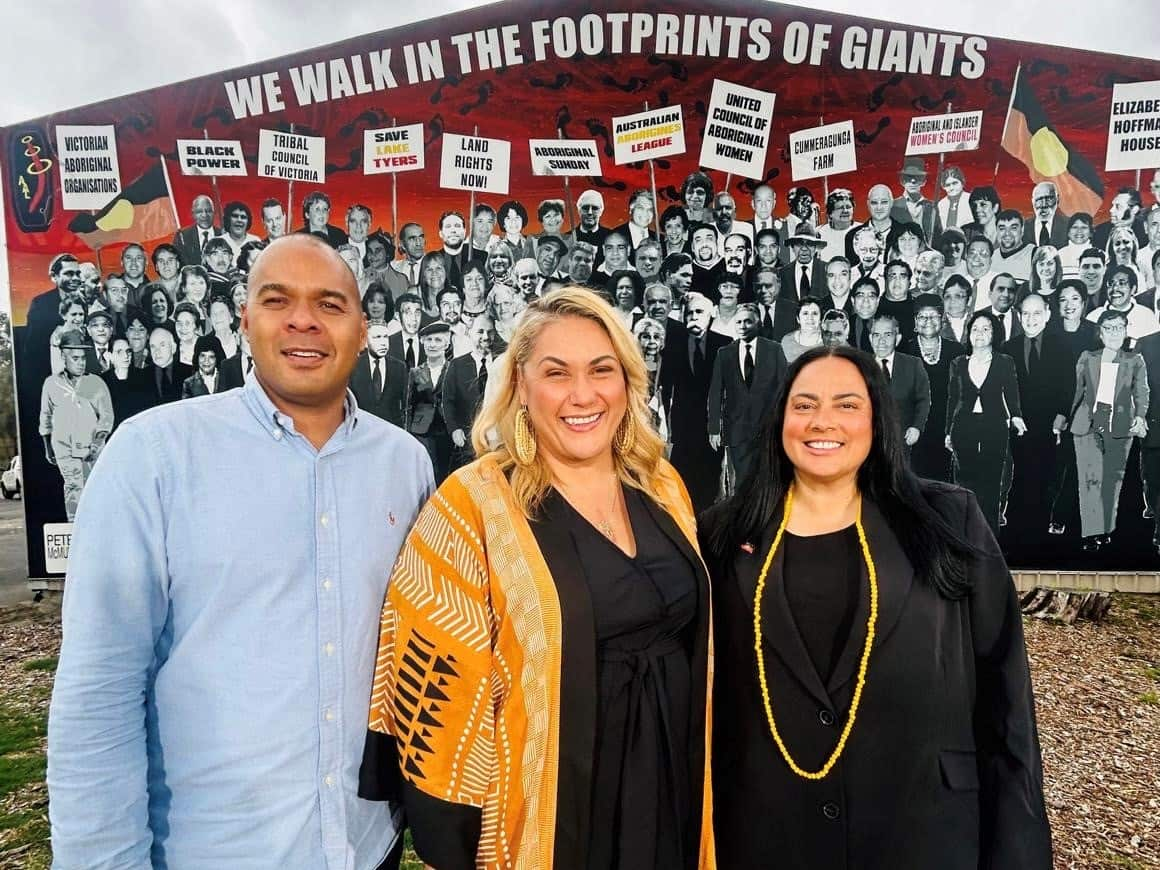
معاہدہ اہم کیوں ہے؟
بہت سے پہلے اقوام کے لوگ معاہدے کو انصاف، احترام، اور مستقبل میں بہتر تعلقات کی طرف ایک قدم کے طور پر دیکھتے ہیں۔
رُیُوبن برگ، جو وکٹوریا کے معاہدے کے عمل میں گُنڈٹجمارا قبیلے کے اہم رہنما ہیں، کہتے ہیں، "میرے خیال میں معاہدہ بہت کلیدی ہے، یہ پہلے اقوام اور حکومت کے درمیان تعلق کو دوبارہ ترتیب دینے کا معاملہ ہے، چاہے یہ صوبائی سطح پر ہو یا مشترکہ سطح پر۔"
معاہدہ اس لئے اہم ہے کیونکہ یہ درج ذیل امور کر سکتا ہے:
- آسٹریلیا کے اصل باشندے یعنی ابوریجنل اور ٹورس سٹریٹ جزائر کے لوگوں کو تسلیم کرنا۔
- آسٹریلیا کی تاریخ کے بارے میں حقیقت پسندی کو فروغ دینا۔
- زمین، صحت، تعلیم، اقتصادی ترقی اور ثقافت جیسے مسائل پر حقیقی شراکت داریاں قائم کرنا۔
وردی شخص وکیل ٹونی میک اوائی کا کہنا ہے، "جب ہم اپنی زندگیوں کو خود کنٹرول کرنے کے قابل ہوتے ہیں، اور اپنے لئے فیصلے کرتے ہیں اور اپنی خدمات فراہم کرتے ہیں، تو ہم اپنی صحت میں سب سے زیادہ مضبوط اور سب سے زیادہ روحانی و ثقافتی لحاظ سے خوشحال ہوتے ہیں۔ اگر آپ یہ تسلیم کرتے ہیں کہ یہ معاہدے کا ایک نتیجہ ہے، تو یہ پورے ملک کے لئے اچھا ہونا چاہئے۔"
معاہدے میں کیا شامل ہو سکتا ہے؟
معاہدے کئی اشکال لے سکتے ہیں اور مختلف مسائل کا احاطہ کر سکتے ہیں، ان میں شامل ہو سکتا ہے:
- خودمختاری کو تسلیم کرنا اور فرسٹ نیشنز کے لوگوں کی اپنی برادریوں کے بارے میں فیصلے کرنے کا حق دینا۔
- زمین، پانی اور وسائل کے استعمال، انتظام اور تحفظ کے بارے میں معاہدے۔
- زبانوں، ثقافتی مقامات اور روایات کے احیاء اور تحفظ کے عزم۔
- صحت، تعلیم، ہاؤسنگ اور دیگر پروگراموں کے لیے فنڈنگ اور سپورٹ۔
گننائی، گنڈتجمارا اور جباب ورنگ کی خاتون اور وکٹوریہ کی سینیٹر لیڈیا تھورپ کا خیال ہے کہ مقامی کمیونٹیز کو اس عمل میں قیادت کرنی چاہیے۔
مجھے لگتا ہے کہ ہمارے لیے قبائل اور قوموں کو مقامی حکومت کی سطح پر نمائندگی دینا ضروری ہے۔ یہ ہئ وہ مقامی کمیونٹیز جن میں ہم حقیقی تبدیلی لا سکتے ہیں۔Senator Lidia Thorpe
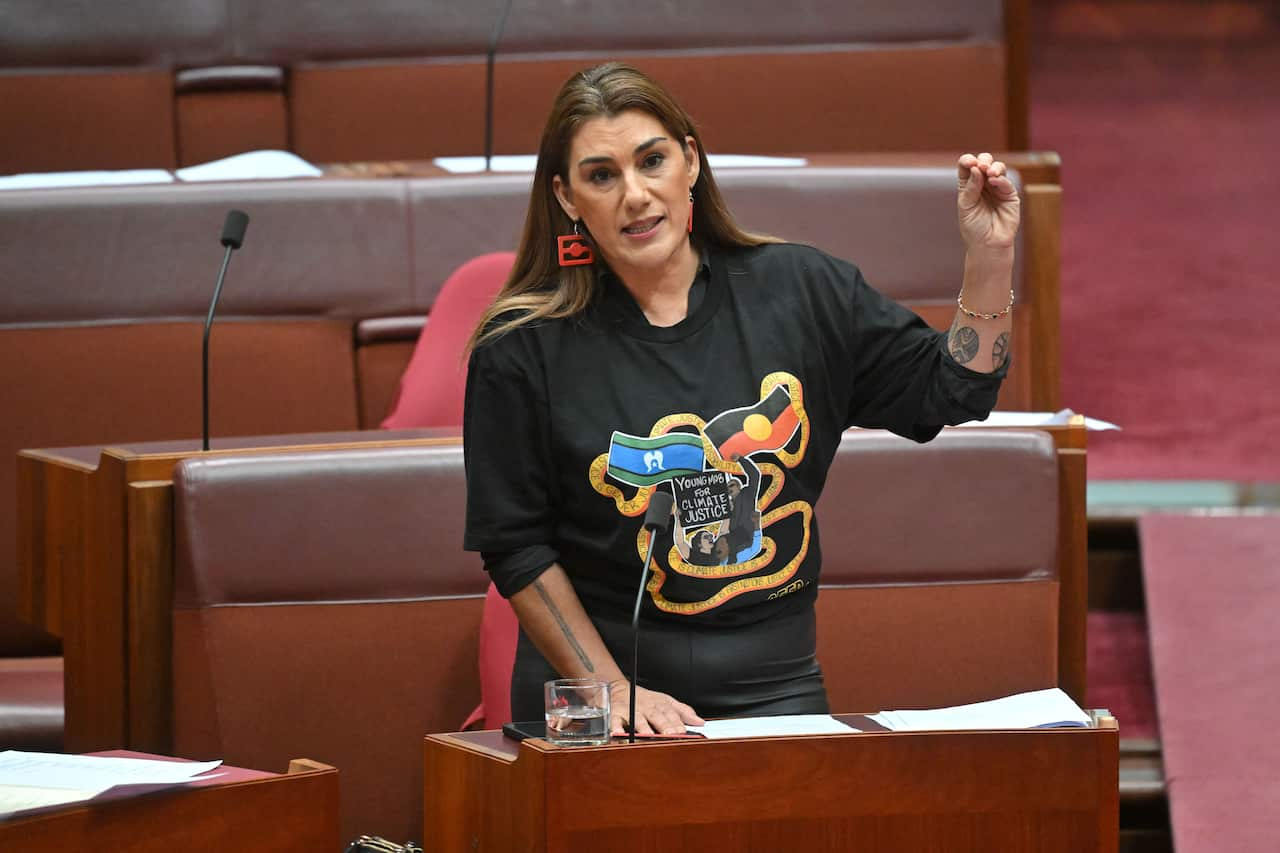
آسٹریلیا میں معاہدے کا اگلا قدم کیا ہو گا؟
آسٹریلیا بھر میں، معاہدے کی پیش رفت مختلف رفتاروں سے جاری ہے۔ کچھ ریاستوں جیسے وکٹوریا اور کوئنز لینڈ نے اپنے معاہدات کی جانب اقدامات اٹھانے شروع کر دیے ہیں جبکہ دوسری ریاستیں، جیسے نیو ساؤتھ ویلز، اس وقت مشاورتوں میں مشغول ہیں کہ ان کے لیے ایک معاہدہ کس طرح کا ہو سکتا ہے۔ ہر عمل مقامی ضروریات کی رہنمائی میں ہوتا ہے اور ملک کے مختلف حصوں میں مختلف نظر آ سکتا ہے۔
اس وقت وکٹوریا پوری قوم کی رہنمائی کر رہا ہے۔ ستمبر 2025 میں، وکٹوریا کی حکومت اور فرسٹ پیپلز اسمبلی آف وکٹوریا نے آسٹریلیا کے پہلے مکمل ریاستی معاہدے پر اصولی معاہدہ طے کیا، جو برسوں کے مذاکرات اور کمیونٹی مشاورت کا نتیجہ ہے۔ وکٹوریا کا معاہدے کا عمل پورے آسٹریلیا کے لیے ایک مثالی نمونے کے طور پر تسلیم کیا جاتا ہے۔
یہ جاننا اہم ہے کہ قومی معاہدہ اور ریاستی معاہدات مختلف ہیں۔
ایک قومی معاہدہ ایک واحد، ملک گیر معاہدہ تشکیل دے گا جو آسٹریلیا بھر میں ابیجنل اور ٹورس اسٹریٹ آئلینڈر حقوق کو تسلیم کرے گا۔ ریاستی اور علاقائی معاہدات ہر علاقے کے لیے خصوصی بنائے جاتے ہیں، مقامی ترجیحات اور ضروریات پر توجہ دیتے ہوئے۔ بہت سے حامی سمجھتے ہیں کہ حقیقی تبدیلی لانے کے لیے قومی اور ریاستی معاہدات دونوں کی ضرورت ہے جنہیں ساتھ مل کر کام کرنا چاہیے۔
معاہدہ صرف فرسٹ نیشنز کا مسئلہ نہیں ہے، یہ سب کے لیے شناخت، احترام، اور انصاف کے بارے میں ہے۔
معاہدے کا ہونا ایک ایسا مستقبل بنانے میں مدد کرتا ہے جہاں ہر آواز اور تجربہ کی قدر کی جاتی ہے۔ معاہدے کے اگلے ابواب مقامی کمیونٹیز، حکومتوں، اور ان تمام لوگوں کے ذریعے لکھے جاتے رہیں گے جو آسٹریلیا کے مستقبل میں شریک ہونا چاہتے ہیں۔ معاہدے کے عمل کو سمجھنا ہر ایک کے لیے اس ملک کی تاریخ سے گہرائی میں جڑنے اور ایک منصفانہ مستقبل کو شکل دینے میں مدد دیتا ہے۔
یہ قسط ٹی وی پروگرام: لیونگ بلیک – دی کیس فار اے ٹریٹری سے منتخب حصے شامل کرتی ہے جو پہلی بار جولائی 2025 میں نشر ہوئی۔ آپ مکمل قسط ’ایس بی ایس آن ڈیمانڈ‘ پر دیکھ سکتے ہیں۔
Stream free On Demand

The Case For A Treaty
episode • Living Black • News And Current Affairs • 34m
episode • Living Black • News And Current Affairs • 34m
Subscribe to or follow the Australia Explained podcast for more valuable information and tips about settling into your new life in Australia.
Do you have any questions or topic ideas? Send us an email to australiaexplained@sbs.com.au
